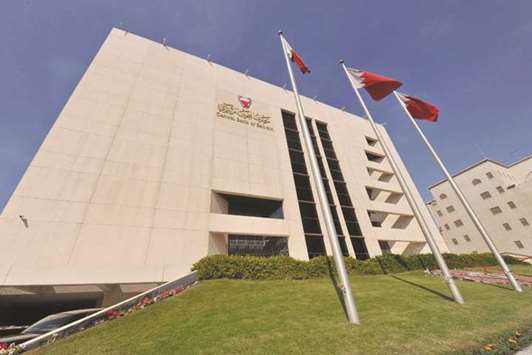Greylock Capital Management LLC, a hedge fund that holds the distressed bonds of Mozambique and Venezuela, says Bahrain is its next potential target.
The cash-strapped Gulf nation has been slow to implement reforms compared with its richer neighbours, including Saudi Arabia, after the slide in oil prices that began in 2014 eroded their wealth. Bahrain will have to revive its financial fortunes to prevent its debt from slumping to distressed levels, according to Bashar Zakaria at the California Public Employees’ Retirement System, the largest US pension fund.
“There’s been a lot of chatter around some of their fiscal stresses,” said Hans Humes, the chief executive officer of New York-based Greylock Capital Management, which specializes in emerging-markets distressed debt.
The central bank’s foreign assets dropped in March to the lowest level in seven months and the International Monetary Fund expects the island kingdom’s debt to exceed 100% of economic output in 2019.
Bahrain has enough net foreign assets to last it for up to three years, fuelling concerns it may struggle to keep its currency’s peg to the dollar, according to Bloomberg Economics.
Still, central bank governor Rasheed al-Maraj said last week the country has enough foreign reserves to maintain the currency’s peg, as a recovery in oil prices help ease pressure on its public finances. In addition to spending cuts and the reduction of subsidies, Bahrain will impose a value-added tax next year to help generate revenue, he said, following Saudi Arabia and the UAE.
“The current macroeconomic situation in Bahrain is not sustainable,” said Zakaria, a senior emerging-markets strategist at Sacramento, California-based Calpers. “They must act swiftly to turn things around on the fiscal front. If they can do that, then we will see some retracement. Removing the currency’s peg to the dollar could have “serious negative results for Bahrain” and potentially for others in the region, Zakaria added.
Bahrain’s dollar-denominated bonds plummeted this year, with the debt maturing in 2029 touching 87.2 cents on the dollar. The cost to insure Bahrain’s bonds against a default for five years climbed last week to 361 basis points, the highest since 2016, based on credit-default swaps.
“My personal bias is to start looking when it gets to 25 cents to the dollar, but that doesn’t happen that often,” said Humes, a veteran of debt deals in Argentina and Greece. “In general, we don’t tend to pile when it goes to 65, 70 cents to the dollar.”
Bahrain, the Gulf’s smallest economy, has been relying on debt sales to finance budget and current-account deficits. It scrapped an offering in March after investors sought higher yields, but raised $1bn from Islamic securities. The nation’s debt is rated junk by the three major rating companies.
“It doesn’t necessarily look like the debt levels are sustainable, but things could work out,” Humes said. It’s a question of market access, he said.
In November, Bloomberg News reported that Bahrain had asked Saudi Arabia, the UAE and Kuwait for financial assistance. Al-Maraj said he wasn’t aware of any current talks between Bahrain and its Gulf Arab allies over financial support that could help the country avoid devaluation.
“Saudi Arabia is often considered the lender of last resort for Bahrain due to converging political interests,” Regis Chatellier, an emerging-market strategist at Societe Generale SA in London, wrote in a note dated May 10. “In 2003, the Saudi kingdom granted Bahrain 50,000 bpd of oil in order to boost government revenues; we believe similar aid is possible in the future.”

Bahrain central bank’s foreign assets dropped in March to the lowest level in seven months and the International Monetary Fund expects the island kingdom’s debt to exceed 100% of economic output in 2019


